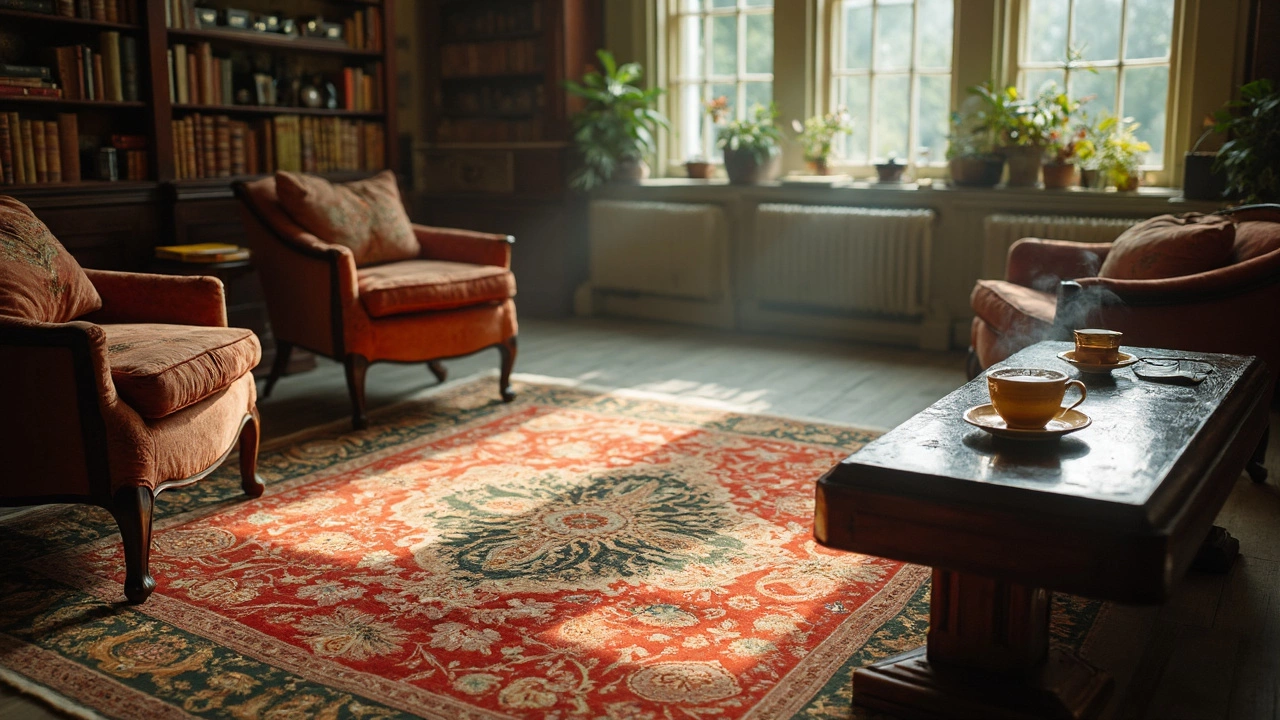Luxury Rug Material Guide: What Really Makes a Rug Worth the Investment
If you’re hunting for a rug that feels plush, lasts years, and adds wow factor, the material matters more than the color or pattern. Below we break down the most popular high‑end fabrics, why they work, and how to keep them looking fresh.
Wool – The Classic Choice
Wool rugs are the go‑to for most designers because they balance softness with strength. The natural fibers bounce back after foot traffic, so dents disappear quickly. Wool also handles spills better than many synthetics; the fibers repel liquid, giving you a few extra minutes to wipe up. Look for tightly twisted yarns and a high pile density – those signs mean the rug will stay flat longer.
Silk – The Ultra‑Lux Look
Silk rugs scream luxury. The sheen is unmatched, and the texture feels like walking on a cloud. The downside? Silk is delicate, so it’s best for low‑traffic rooms like a formal living room or hallway. Spot‑clean only, and avoid direct sunlight that can fade the fibers. If you love the look, pair a silk rug with a sturdy wool underlay to protect it from wear.
Other premium options include bamboo, bamboo‑silk blends, and high‑grade synthetic fibers like polypropylene that mimic silk’s shine without the fragility. These alternatives are great for families with kids or pets because they resist stains and are easier to clean.
When you pick a luxury rug, consider three practical factors: softness, durability, and maintenance. Softness is all about how the fibers feel underfoot – run your hand over the pile, and you’ll know instantly if it’s a match. Durability comes down to yarn twist and density; tighter twists mean the rug holds up longer. Maintenance is often the deal‑breaker – if you need to vacuum daily and can handle spot‑cleaning, most materials will work. If you want a “set it and forget it” rug, lean toward tightly woven wool or a high‑grade synthetic.
Finally, price doesn’t always equal quality, but with luxury rugs, you’re paying for the sourcing, hand‑tying, and labor that go into each piece. A $400 wool rug can outlast a $1,200 synthetic if the construction is solid. Check the label for details like pile height, knot count, and country of origin – those clues tell you if you’re getting a true investment piece or just a flashy name‑brand.
Bottom line: choose the material that fits your lifestyle, not just your Instagram feed. Wool for everyday elegance, silk for a statement, or a tough synthetic blend for busy households. With the right care, any of these luxury rug materials will keep your space looking classy for years to come.
